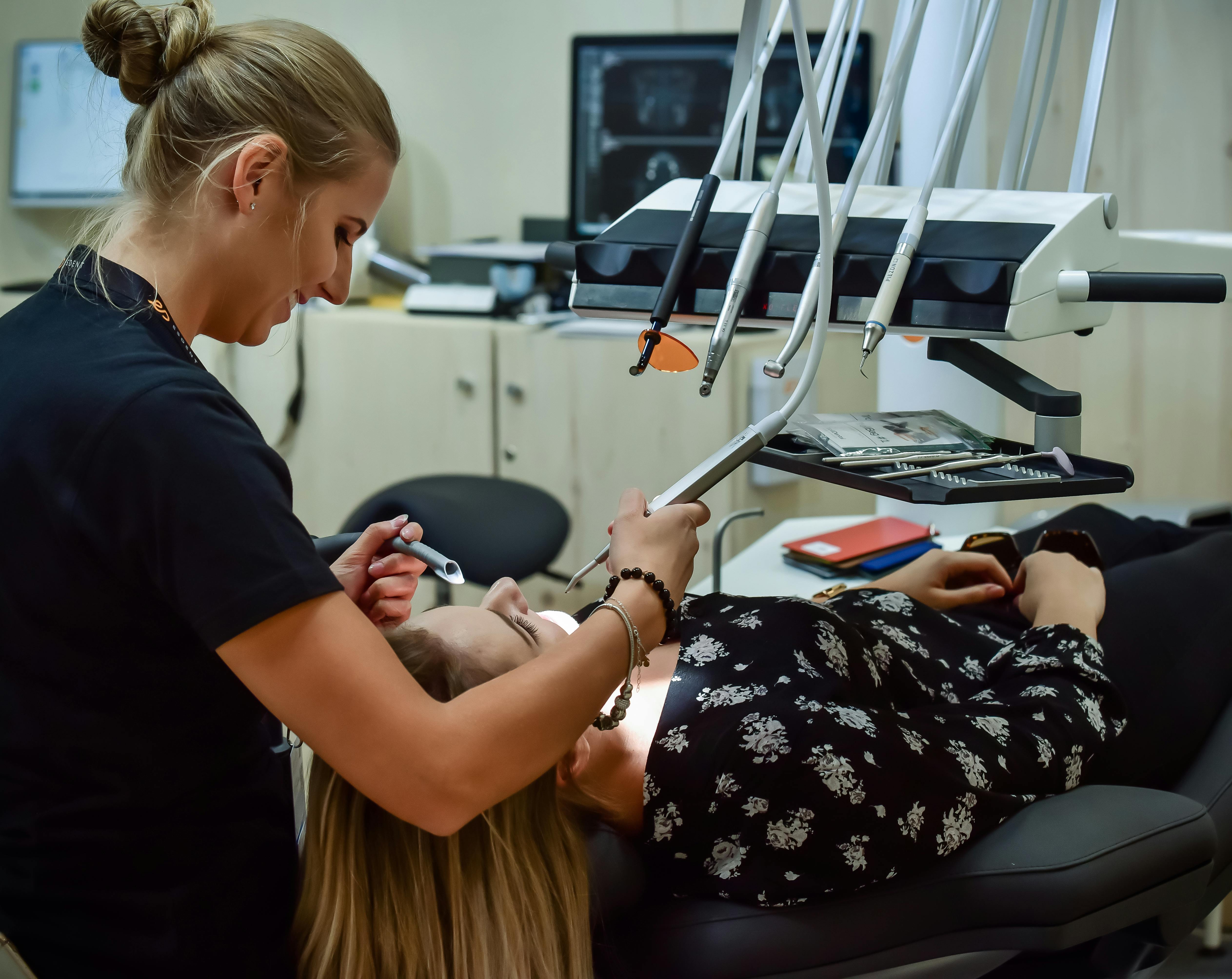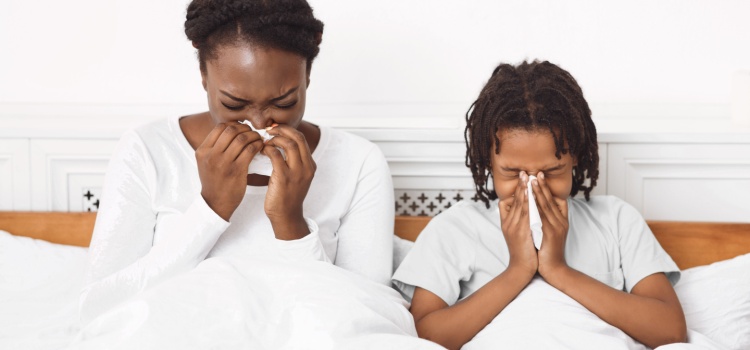February is National Children's Dental Health Month
February puts kids’ dental health in the spotlight, but building strong smile habits is something families should be doing all year long. From easy daily routines to smart savings through Union Plus partners like Careington, this month is your chance to make great dental care part of your family’s everyday life to ensure they have a bright smile for years to come.
February is National Children’s Dental Health Month! Take the time this month to help your children understand the importance of oral health. As their teeth begin developing, it is important to establish healthy teeth cleaning habits. Here are a few fun tips that are going to introduce your kids to a healthy smile:
- Be a role model: There is no doubt that kids like to imitate those around them. Be a good role model and demonstrate good oral health habits. Help them understand the importance of oral health by taking the time to properly teach them how to brush and floss.
- Schedule dental appointments: Did you know it is recommended to see a dentist at least twice a year? Schedule routine dental appointments for your child and ensure they are getting the checkups and treatments their growing teeth deserve.
- Eat healthy, delicious foods: We get it, your child may not be the biggest fan of fruits and veggies. However, avoiding sugary drinks and foods not only helps overall health, but it can help avoid cavities.
- Use rewards: Incorporate these simple tips to your child’s dental routine by offering them a reward. Set goals and track their progress. Once a goal is met, you can treat them to a movie or a trip to the toy store.
The Union Plus Dental Discount Plan can help you save from 5% to 60%* on your next dental appointment, cleanings and other major work. Call us toll-free at (877) 570-4845 for assistance or click to search for a dental provider near you, schedule your appointment and save.

*+$10 one-time, nonrefundable processing fee.
THIS PLAN IS NOT INSURANCE and is not intended to replace health insurance. This plan does not meet the minimum creditable coverage requirements under M.G.L. c.111M and 956 CMR 5.00. This plan is not a Qualified Health Plan under the Affordable Care Act. The range of discounts will vary depending on the type of provider and service. The plan does not pay providers directly. Plan members must pay for all services but will receive a discount from participating providers. The list of participating providers is at Union Plus Dental Discount Plans. A written list of participating providers is available upon request. You may cancel within the first 30 days after effective date or receipt of membership materials (whichever is later) and receive a full refund, less a nominal processing fee (nominal fee for MD residents is $5, AR residentswill be refunded the processing fee). Discount Plan Organization and administrator: Care ington International Corporation, 7400 Gaylord Parkway, Frisco, TX 75034; phone 800-441-0380.
This plan is not available in Vermont or Washington.

February 2026 is your chance to make great dental care part of your family’s everyday routine to ensure bright smiles for years to come.
Prescription card vs. insurance card: Knowing the difference
Prescription discount cards and insurance cards serve different purposes—but both can help reduce your costs at the pharmacy.
Discount cards
Discount cards offer savings and coupons on medications, especially for prescriptions not covered by your insurance. While you can’t use both cards together for the same purchase, it’s smart to carry both — you can compare prices at the counter and choose the lower one. Knowing how these options work can help you and your family save more on medications.
What is an insurance card?
Your insurance card provides key details about your health coverage. You’ll need to show it when visiting a doctor or filling a prescription so the provider or pharmacy can verify your benefits and bill your insurance company for covered services.
It usually includes your name, member ID, plan name, and policy number.
Your insurance card won’t list which medications are covered, but you can find that information in your plan’s formulary—a list of approved drugs.
The formulary is usually available on your insurer’s website in the summary of benefits and coverage section. You can also call your insurance provider or check any documents they’ve sent to confirm if a specific medication is covered.
How prescription discount cards work
Prescription discount cards offer immediate savings—especially on medications not covered by insurance. They’re free to sign up for and can be used right away by showing the card (or coupon) at the pharmacy. No need to submit claims or wait for reimbursement.
Keep in mind: If you use a discount card, the amount you pay likely won’t count toward your insurance deductible or out-of-pocket maximum.
Which saves you more?
If your medication is covered by insurance, using your insurance card may save you more overall— even with a copay or coinsurance. But if it’s not covered, a discount card like the Optum Perks Discount Card could offer significant savings — sometimes up to 80% off.
Can You Use Both?
Not at the same time. You’ll need to compare prices at the pharmacy and choose whichever option offers the lowest out-of-pocket cost.

Optum Perks — P.O. Box 510658, Livonia, MI 48151-6658. Helping people save on their healthcare costs. All rights reserved.
The information on this site does not constitute medical advice and is not intended to be a substitute for proper medical care provided by a physician. This program is not insurance. Prices are subject to change. Designated trademarks and brands are the properties of their respective owners. Pharmacy names, logos, brands, and other trademarks are the property of their respective owners. Use of them does not imply any affiliation with or endorsement by them.

Thousands of union families have saved up to 80% on their Rx’s by using their free prescription discount card. Download the free card today!
Tips to maintain a healthy smile at any age
A healthy smile matters at every age. As we get older, dental issues like gum disease, tooth decay, and even tooth loss can become more common — but they’re not inevitable.
Try an electric toothbrush
Electric or battery-powered toothbrushes are easier to use — especially for those with limited mobility or arthritis. They help reduce plaque and gingivitis more effectively than manual brushing. For best results, brush twice daily for two minutes with fluoride toothpaste.
Replace your toothbrush regularly
Swap out your toothbrush or brush head every 3 months to avoid bacteria buildup. Worn bristles don’t clean as well and can lead to issues like bad breath, gum irritation, and plaque buildup.
Don't skip between-the-teeth cleaning
Bacteria and food can get stuck between teeth, leading to gum issues and bad breath. If flossing is tough, especially for those with limited dexterity, try floss picks, interdental brushes, or water flossers to keep your smile fresh and healthy
While these tips are essential for healthy teeth and gums, they don’t negate the importance of a trip to the dentist for regularly scheduled cleanings. Regular dental visits help you ward off oral health problems through early detection and treatment.
Affordable dental care with Careington
The Union Plus Dental program offers dental discount plans that make it easier to access high-quality affordable dental care. Plans start at $7.95/month* and are a great way to manage the costs of regular checkups and treatments for you and your family.


With tips from our partners at Careington, you can take simple steps to maintain strong, healthy teeth and age gracefully with confidence.
Tips for better dental health
February is National Children’s Dental Health Month and the perfect time to focus on keeping your family’s smiles healthy. With the right habits and a little help from our partners at Careington, you can ensure your little ones — and the whole family — have strong, healthy teeth.
Start them early to build healthy habits
Good oral hygiene begins before your child even has a full set of teeth. Make sure your child visits the dentist within six months of their first tooth coming in. Early dental checkups help catch any potential issues and set the stage for a lifetime of healthy smiles.
Teach your child to brush and floss at least twice a day. Building a positive relationship with dental care early will help them develop habits they’ll carry into adulthood.
Eat for healthy teeth
A nutritious diet is just as important for dental health as it is for overall health. Foods rich in calcium, like milk and yogurt, and phosphorus found in eggs and meat, help build strong teeth. At the same time, limit sugary snacks and drinks, which can lead to tooth decay.
Even healthy foods like fruits, especially citrus, contain natural sugars and acids that can harm teeth if left unchecked. Encourage your family to rinse their mouths or brush after meals to protect their smiles.
Be a role model
Kids learn by watching, so the best way to teach good dental habits is to practice them yourself. Brush and floss at least twice a day, avoid letting sugar or acidic foods linger on your teeth, and make regular dental checkups a priority. When your kids see you taking care of your teeth, they’ll be more likely to follow suit.
The Union Plus Dental program offers dental discount plans that make it easier to access high-quality, affordable dental care. Plans start at $7.95/month* and are a great way to manage the costs of regular checkups and treatments for you and your family.

*+$10 one-time, nonrefundable processing fee
THIS PLAN IS NOT INSURANCE and is not intended to replace health insurance. This plan does not meet the minimum creditable coverage requirements under M.G.L. c.111M and 956 CMR 5.00. This plan is not a Qualified Health Plan under the Affordable Care Act. The range of discounts will vary depending on the type of provider and service. The plan does not pay providers directly. Plan members must pay for all services but will receive a discount from participating providers. The list of participating providers is at Union Plus Dental Discount Plans. A written list of participating providers is available upon request. You may cancel within the first 30 days after effective date or receipt of membership materials (whichever is later) and receive a full refund, less a nominal processing fee (nominal fee for MD residents is $5, AR residents will be refunded the processing fee). Discount Plan Organization and administrator: Careington International Corporation, 7400 Gaylord Parkway, Frisco, TX 75034; phone 800-441-0380.
This plan is not available in Vermont or Washington.

February is National Children's Dental Health Month. Keep your family smiling bright with these tips for better dental health!
Is it a cold, flu or sinus infection?
Wondering if you have a cold, the flu or a sinus infection? These conditions have a lot of similarities, but they also have some key differences to help you tell them apart.
Colds
Viruses cause colds. Many different viruses can cause a cold, and rhinoviruses are the most common type. These viruses are easily transmissible from one person to another and often crop up in colder seasons.
Colds can cause a variety of symptoms. You may, or may not, experience them all at once, but common cold symptoms include runny nose, sneezing, congestion, headache, sore throat, coughing, chills or fever (rare symptoms), and slight body aches. Colds can last up to 2 weeks, but according to the CDC, symptoms usually worsen within the first 3 days.
There is no medical cure for a cold. Usually, doctors advise you to wait while you get better on your own cautioning you to rest, stay hydrated, use over-the-counter (OTC) nasal spray to ease congestion, and take OTC decongestant medications like pseudoephedrine (Sudafed).
The Flu
Like colds, viruses cause flu. Although any one of the four types of influenza viruses may be the cause, the most common flu-causing viruses during flu season in the United States are influenza A and influenza B. Like other viruses, the flu virus also spreads from person to person, mainly through tiny droplets when someone with the infection coughs or sneezes.
The flu affects your respiratory system, causing similar symptoms to a cold, including fever, cough, runny or blocked nose, body aches, headache, and fatigue.
While most people recover from the flu within 2 weeks, it can also lead to more serious complications. These are more common in people with weakened immune systems, such as older adults (ages 65+) and young children. Examples of these complications include pneumonia, ear or sinus infections, worsening of an existing condition such as asthma, or swelling of the heart or brain. If you think you’re developing any of these complications, call 911 and seek medical attention immediately. They may be life threatening.
If you aren’t at risk of complications, the flu might go away on its own with OTC medications and plenty of rest and hydration. You might benefit from antiviral drugs, especially if taken within 2 days of symptom onset. One common example is oseltamivir (Tamiflu). Antivirals may reduce the severity of symptoms, reduce the length of time you feel sick, and lower your risk of complications.
Sinus Infections
Sinusitis occurs due to fluid building up in your sinuses. Viruses can cause sinusitis, but unlike colds and the flu, certain bacteria may also cause sinus infections. Certain factors can increase your risk of developing sinusitis, like having a cold, allergies or asthma, smoking (if you smoke), and having structural changes in the bone. Sinusitis is not seasonal so you can get this any time of the year.
The symptoms of a sinus infection can mimic those of a cold or flu and include a runny or blocked nose, cough, headache, pain or pressure in the face, postnasal drip, and bad-smelling breath. A sinus infection can last much longer than a cold or flu. Some infections last between 10 days and 8 weeks, while long-lasting (chronic) infections may go on much longer.
If a virus is causing a sinus infection, it will eventually get better on its own. Doctors can treat the symptoms with different medications like antihistamines, such as diphenhydramine (Benadryl) or cetirizine (Zyrtec), decongestants such as Sudafed, and nasal steroids like ciclesonide (Zetonna).
If bacteria are the cause, doctors may prescribe an antibiotic such as amoxicillin (Amoxil), although this is less common.
Colds, the flu, and sinus infections can all have similar symptoms, however as outlined in this guide, there are key differences between them. At Union Plus, we know how important it is to our union members to keep their families healthy all year round. This guide provides some helpful tips on how to identify your symptoms and provides guidance on treatment plans. If your symptoms are severe or not going away on their own, speak with a doctor for a diagnosis and treatment plan immediately.

Optum Perks - P.O. Box 510658, Livonia, MI 48151-6658. Helping people save on their healthcare costs. All rights reserved.
The information on this site does not constitute medical advice and is not intended to be a substitute for proper medical care provided by a physician. This program is not insurance. Prices are subject to change. Designated trademarks and brands are the properties of their respective owners. Pharmacy names, logos, brands, and other trademarks are the property of their respective owners. Use of them does not imply any affiliation with or endorsement by them.
*Total union member savings, ending September 2024. Data provided by Optum Perks.

If you have a blocked or runny nose, headache, or cough, you might wonder if it's a cold, flu, or sinus infection. Our partners at Optum Perks share tips on how you can identify which condition it is and how to properly treat it.
Clear Vision, Bright Future: National Eye Care Month
January is National Eye Care Month — a time to focus on eye health and ensure everyone in your family can see their best. Our eyes do so much every day, yet we often put off essential care that keeps them healthy. Let’s take a few moments this month to commit to healthy eyecare for ourselves and our families.
Why eye care matters:
- Routine checkups: A yearly eye exam can catch issues like glaucoma or macular degeneration before they become serious. A VSP® network doctor can help with any refractive errors and provide a full health check for your eyes.
- Eye safety: On the job and at home, eye safety counts! Use protective eyewear when needed, especially if you’re working in a hazardous environment or playing sports. It’s a simple step to avoid injuries.
- Kid’s eye health: Catching vision issues early in children helps prevent learning and developmental delays. If you have young ones, schedule their exams and keep an eye out for signs of vision struggles.
- Smart lifestyle choices: Eating well, staying active, and reducing screen time can all help keep our eyes in top shape. Follow the 20-20-20 rule to ease eye strain when using digital devices. The 20-20-20 rule instructions: Set a timer to remind you to look away every 20 minutes at an object that is about 20 feet away for a full 20 seconds.
Union Plus, with VSP® Individual Vision Plans, makes vision care affordable so you can make eye health a priority. This National Eye Care Month, let’s commit to seeing clearly for the road ahead — because healthy eyes mean a brighter future.

Information received through VSP Vision Care's social media channels is for informational purposes only and does not constitute medical advice, medical recommendations, diagnosis, or treatment. Always seek the advice of your physician or other qualified health provider with any questions you may have regarding a medical condition.
VSP is a registered trademark, and the VSP Individual Vision Plans logo is a trademark of Vision Service Plan.
©2024 Vision Service Plan. All rights reserved. VSP is a registered trademark of Vision Service Plan. All other brands or marks are the property of their respective owners. 125258 VCCM

Healthy vision is key to enjoying life with family and friends. This January, with our partners at VSP®, learn simple ways to keep you and your family’s sight sharp all year.
How to help a sunburn heal faster
Sunburn happens when your skin gets too much UV radiation, leading to discoloration, pain, and swelling. Anyone can get sunburned, no matter their skin type. Sunburns range from mild redness (first-degree) to painful blisters (second-degree) and even deeper damage (third-degree). Mild sunburns usually heal in a week, but severe ones can last a month or more. Remember, even a mild sunburn can cause long-term damage.
Tips to heal a sunburn
Here are some top tips from the American Academy of Dermatology (AAD) to help your body heal from sunburn:
- Cool down: Take gentle cool showers or baths and use cold compresses for immediate relief. Avoid placing ice directly on your skin to prevent frostbite.
- Moisturize: Use lotions with aloe vera to soothe and hydrate your skin. Steer clear of lotions containing alcohol, as they can dry out your skin.
- Hydrate: Drink plenty of water to aid skin repair. Avoid alcohol and caffeinated drinks, as they can dehydrate you.
- Avoid sun exposure: Cover sunburned skin to prevent further damage. If the sunburn is severe, seek medical attention.
How to prevent a sunburn
Keep your skin safe from harmful UV rays with these tips:
- Apply sunscreen: Use a broad-spectrum, water-resistant sunscreen. Lighter skin tones should opt for SPF 50 or higher, while darker skin tones can use SPF 15 to 30. Always reapply as directed, especially after swimming or sweating. Tinted sunscreen may offer extra protection.
- Wear protective clothing: Choose long-sleeved shirts, long pants, and wide-brimmed hats. UV-protective clothing is also a great option.
- Seek shade: Avoid direct sunlight, especially between 10 a.m. and 4 p.m.
- Check the UV index: Plan outdoor activities when the UV index is low to minimize skin damage risk.
- Use sunscreen on cloudy days: UV rays penetrate clouds, so always protect your skin, even when it's overcast.
- Use solar radiation sensors: Wearable devices that measure UV exposure in real time can alert you when you're at risk, helping you balance sun exposure and protection.
Medical treatments for sunburn
Sometimes, sunburns need medical intervention, especially if they’re severe. Here are some over-the-counter (OTC) treatments:
- Pain and inflammation: Nonprescription pain relievers like ibuprofen (Advil, Motrin) and naproxen (Aleve) are great for reducing sunburn-related pain and inflammation.
- Moisturizers: Use lotions containing aloe vera to soothe sunburned skin. Avoid products with petroleum, as they can trap heat.
- Skin inflammation and itchiness: OTC creams like hydrocortisone (Cortizone-10, Cortef) can help reduce mild skin inflammation and itchiness.
Prescription treatments for sunburn
For more severe sunburns, medical professionals may recommend prescription treatments:
- Severe sunburn: Doctors might prescribe corticosteroid creams like triamcinolone (Kenalog) or clobetasol (Temovate) when OTC treatments aren’t effective.
- Pain from severe sunburn: Stronger pain relievers such as tramadol (Ultram) or hydrocodone acetaminophen (Vicodin, Norco) can help manage extreme pain.
- Infections: If a sunburn leads to a bacterial infection, antibiotic treatments like mupirocin (Bactroban) or oral antibiotics like cephalexin (Keflex) can treat the infection.
By following these tips, you can enjoy all the fun of summer while keeping your skin safe from sun damage. At Union Plus, we understand how important skin health is to our members and their families. This article offers helpful tips on protecting your skin this summer, but remember, it's always best to consult a healthcare professional for personalized advice and care.

Optum Perks - P.O. Box 510658, Livonia, MI 48151-6658. Helping people save on their healthcare costs. All rights reserved.
The information on this site does not constitute medical advice and is not intended to be a substitute for proper medical care provided by a physician. This program is not insurance. Prices are subject to change. Designated trademarks and brands are the properties of their respective owners. Pharmacy names, logos, brands, and other trademarks are the property of their respective owners. Use of them does not imply any affiliation with or endorsement by them.

We know union members want to enjoy summer outdoors with their families. Here are some tips to help you stay safe from harmful sun rays. Learn how to heal, prevent, and relieve sunburn. Keep your skin healthy and glowing all season long!
Tips for enjoying summer while protecting your hearing
How loud is too loud?
Did you know that even a simple walk around your neighborhood can put you at risk for long-term hearing damage? Our outdoor environments can be surprisingly loud, with noise from roaring lawnmowers, construction vehicles, equipment, and emergency vehicles with blaring sirens.
Sound intensity, measured in decibels (dB), gives us a scale to understand this better. For example, everyday conversation typically measures around 60 dB, while a live music performance can range from 100-115 dB.
It’s not just about the loudness though. Even regular exposure to sounds as low as 85 dB can lead to hearing loss if you're exposed for more than 8 hours a day. Research shows that noticeable hearing loss can occur after 10 years or more of such exposure.
Whether it's the sudden, intense noise of a gunshot or firework or the quieter, constant sounds over many years, it's crucial to wear hearing protection. This simple step can prevent permanent damage and protect your hearing health.
Ways to protect your ears from loud noises
We never want you to miss out on your favorite outdoor hobbies or sounds. However, it's important to be aware of their impact on your hearing health and find ways to reduce noise-induced hearing loss. Protecting your hearing is crucial for your long-term health and wellness.
Here are a few ways to protect your hearing without compromising your summer fun:
Take breaks
Schedule some quiet time between your outdoor activities to give your ears a break from loud noises.
Wear passive hearing protection
Earplugs or earmuffs can be conventional or custom-made. With many options available, it's easy to find one that best suits your activity level and personal preference. Properly fitted earplugs or earmuffs can reduce noise by 15 to 30 dB, lowering your exposure to harmful noise levels. As you pack your gear, make hearing protection part of your equipment checklist.
Stay mindful of your surroundings
Smartphones and smartwatches can be incredibly useful in helping us stay aware of exposure to harmful outdoor noises. Many smart devices have built-in noise-level monitoring features that can alert you when you're being exposed to noise pollution. This is particularly useful when going for a walk outdoors or meeting friends at a restaurant, where you might not realize you're at risk.
By using this technology, you can be notified when noise levels exceed safe thresholds, allowing you to take necessary precautions such as using ear protection or removing yourself from the environment. Additionally, some devices can track the noise levels you are exposed to on a regular basis, providing valuable data that can help you take steps to protect your hearing in the long term.
Try active hearing protection
Active hearing protection devices use electronic technology to enhance hearing while also protecting you from loud noises. These devices typically contain microphones and speakers that allow you to hear ambient sounds safely while automatically reducing the volume when loud noises are detected.
Active hearing protection is particularly beneficial in environments where communication and situational awareness are essential, such as shooting ranges, industrial settings, and construction sites. By investing in these advanced devices, you can protect your hearing without sacrificing your ability to stay alert and communicate effectively.
Does noise canceling protect hearing?
When used properly, noise-canceling earbuds or headphones can help protect your hearing by reducing the need to turn up the volume to overcome external noise. This is especially beneficial in environments with high background noise as it allows you to listen to audio at a lower, safer volume while still enjoying clear sound quality. However, it's important to note that noise-canceling technology does not protect your hearing from loud and damaging environmental noise.
There are many ways to protect your ears from loud noises, especially during the summer. Along with the tips mentioned, schedule regular appointments with a hearing care provider. At Union Plus, we value the health of all our union members and their families. Regular evaluations can identify hearing health issues early, ensuring proper treatment to avoid further damage and protect your overall wellness.

*Based on internal 2022 MSRP analysis. Your savings may vary.

Summer opens up many possibilities for outdoor activities, but they can put your hearing health at risk. Our partners at Amplifon have provided tips on protecting your family's hearing health while enjoying all your favorite activities.
Summer sun, healthy eyes: Simple tips to protect your vision
Sun fun without the eye burn
Ever squinted so hard at the summer sun your eyes felt sore? Believe it or not, your eyes can get sunburned.
The sun blasts out three types of UV rays, but only UVA and UVB rays reach us here on Earth. Over time, too much exposure to these rays can damage your skin and your eyes. According to Prevent Blindness, a strong dose of UVB rays can even give you a corneal sunburn, also known as photokeratitis. Don't worry, it's not permanent, but it can make your eyes feel dry, itchy, and blurry.
Sunglasses: Your eyes' summer BFFs ️
How can you keep your eyes happy and healthy all summer long? Sunglasses are your best bet. Look for shades that block 100% of UVA and UVB rays. Bigger frames are better because they shield your eyes from rays sneaking in from the sides and top. Wraparound styles offer extra protection.
Love spending time by the water? Consider polarized lenses. They block glare bouncing off the surface of the lake or ocean, keeping your vision clear and comfortable.
Be smart when in the sun
Summer means more sunshine, but also more chances to overexpose your eyes to UV rays. Luckily, there are ways to be smart when in the sun to protect your eyes.
- Seek shade: UV rays are strongest between 10 a.m. and 4 p.m. Plan your outdoor activities for earlier mornings or evenings whenever possible.
- Skip the tanning bed: Tanning beds and sunlamps emit UVA/UVB rays too, so avoid those and embrace your natural summer glow.
- Sunscreen and hats: Don't forget sunscreen and a wide-brimmed hat. Sun protection is a team effort, and sunglasses are a key player on that team.
By following these tips, you can enjoy all the fun of summer without putting your eyes at risk.
At Union Plus, we know how important healthy vision is to our members and their families. This article provided a few helpful tips on protecting your vision this summer, but remember, it's not a substitute for a full eye exam.
Don't have an eye doctor yet? A VSP® Individual Vision Plan can help. It connects you with the largest network of providers and offers affordable vision plans with significant vision savings.

Savings based on national averages for eye exams and most commonly purchased brands. Your actual savings will depend on the eyewear you choose, the plan available to you, your copays and your premium.
VSP is a registered trademark, and VSP Individual Vision Plans is a trademark of Vision Service Plan.

We all know that the summer sun can damage our vision. These essential tips from our partners at VSP will help keep your eyes healthy throughout the season.
Conquer allergy season: Exploring safer antihistamines
Finding Long-Term Relief: Exploring Safer Antihistamines
Cetirizine (Zyrtec) is a second-generation antihistamine doctors commonly prescribe to treat urticaria (hives) and inflammation in the nose. It works by blocking histamine, a substance released during an allergic reaction, which helps relieve allergy symptoms such as sneezing, itching, and runny nose.
Possible side effects include drowsiness, dry mouth, and headaches.
Loratadine (Claritin) is also a second-generation antihistamine that can help manage allergies and is available over the counter. It works by blocking the action of histamine to relieve allergy symptoms.
Common side effects are headaches, stomach upset, and dizziness.
Fexofenadine (Allegra) is a third-generation antihistamine that can help treat chronic itching and seasonal allergies. It can also improve symptoms resulting from an overactive immune response.
It is one of the least sedating antihistamines, making it a safe option for long-term use if you take it as your doctor prescribes.
Possible side effects may include, headaches, nose bleeds, nausea, and stomach discomfort.
Desloratadine (Clarinex) is a third-generation antihistamine that works by blocking the action of histamine and treating the nasal and non-nasal symptoms of seasonal allergies such as sneezing, runny nose, and watery eyes. It can also treat chronic urticaria, a type of itchy skin rash.
Possible side effects are dry mouth and fatigue.
Levocetirizine (Xyzal) is an antihistamine belonging to the third-generation drug class. Doctors prescribe it for symptoms of hives on the skin and hay fever.
Common side effects may include fatigue, drowsiness, weakness, and urinary retention.
At Union Plus, we understand the importance of keeping your family healthy and managing allergy symptoms effectively. While this article provided a brief overview of some common allergy medications, remember this is not a substitute for personalized medical advice. Please schedule an appointment with a healthcare professional to review the right options for you and your family.

Optum Perks - P.O. Box 510658, Livonia, MI 48151-6658. Helping people save on their healthcare costs. All rights reserved.
The information on this site does not constitute medical advice and is not intended to be a substitute for proper medical care provided by a physician. This program is not insurance. Prices are subject to change. Designated trademarks and brands are the properties of their respective owners. Pharmacy names, logos, brands, and other trademarks are the property of their respective owners. Use of them does not imply any affiliation with or endorsement by them.

Do you suffer from allergies? Long-term use of allergy medication requires a safer approach. Our partners at Optum Perks have identified the 5 safest antihistamines for continuous use.